Coronavirus: Care home visits 'immensely improve lives'
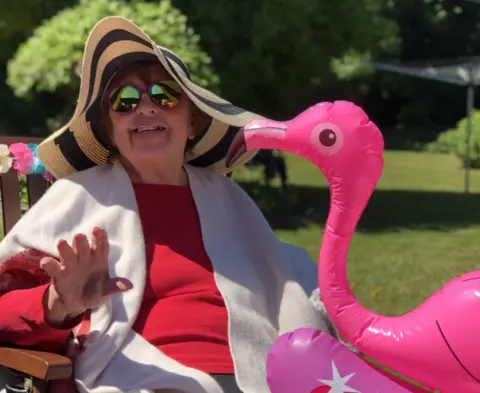 Old Vicarage
Old VicarageCare homes have been urged to allow more indoor visiting for the sake of residents' wellbeing.
The older people's commissioner for Wales said she understood the pressure on homes, but improvements to people's lives were likely to be "immense" with visits from loved ones.
Care Forum Wales said homes were doing what they could to allow indoor visits, but were still cautious.
Its chairman said the sector was also anxious about rises in community cases.
The Welsh Government's guidance for care homes was updated on 28 August to allow indoor visits when the level of Covid-19 at a local or national level allowed. Outdoor visits have been allowed since June.
However, visitors still have to socially distance from residents and cannot "bubble" with the care home.
The Old Vicarage Care Home in Llangollen, Denbighshire, has allowed indoor visits since the restrictions lifted and has been enabling residents to go to church.
"Isolation and loneliness is probably the biggest killer in older people," said manager Bethan Mascarenhas.
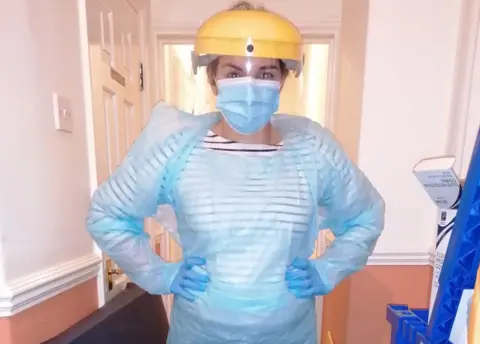 Old Vicarage
Old VicarageBefore lockdown the home was a "hive of activity", she said.
"I knew it would make a massive impact from having loads of people in to no-one in at all."
Ms Mascerenhas and her team sought to recreate as much activity as possible, with events such as a beach party.
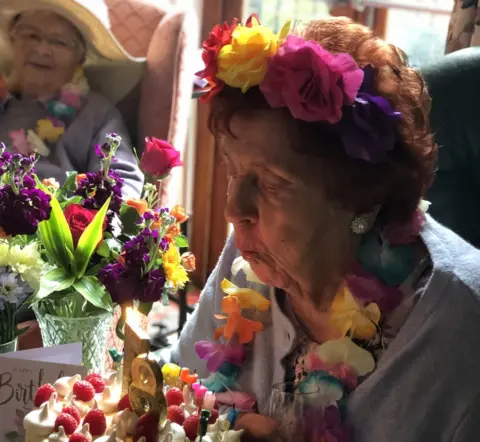 Old Vicarage
Old VicarageResident Iola Roberts, 87, said the staff had been "fantastic" but lockdown had been hard and frightening.
While she can now have family visits, she is also frustrated by continued social distancing: "I said to my son, he didn't give me a kiss or anything. 'Will you give me a kiss?' 'I can't I'm afraid,' he said.
"To me, that was terrible... I want things back to normal."
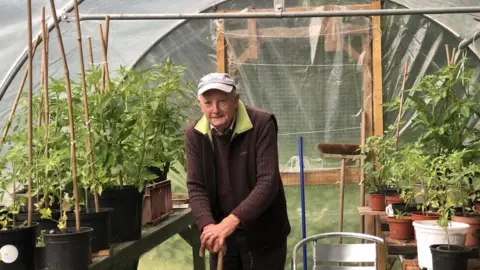 Old vicarage
Old vicarageMs Mascerenhas said some residents were prepared to take more risks than others, but "we've had to explain to residents they have a responsibility to others".
Sandra Mayhew is relieved she can see her 89-year-old father Bill Gosson, who suffers from dementia, but she is conscious she could bring in the virus.
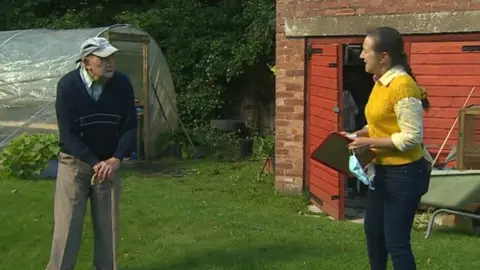
"You're not just acting on behalf of your loved one, you've got to take others into account," she said.
"He was in this horrible without-family situation.
"I went a few months without seeing him in person. There's a difference in him now. He's a lot more down."
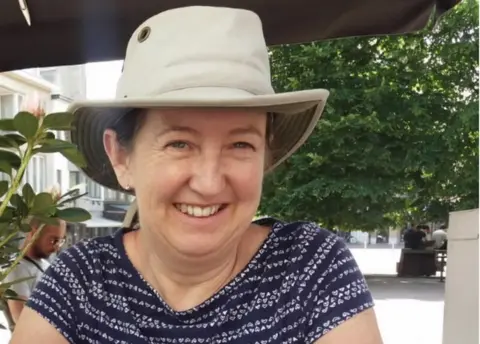 Sandra Mayhew
Sandra MayhewMr Gosson described himself as "deaf as well as daft", and his hearing impairment made communicating with him more difficult.
"I'd often come off FaceTime hoarse from shouting," Mrs Mayhew said.
"I'd hold up what I wanted to say so he could read it, but sometimes he was too tired for that."
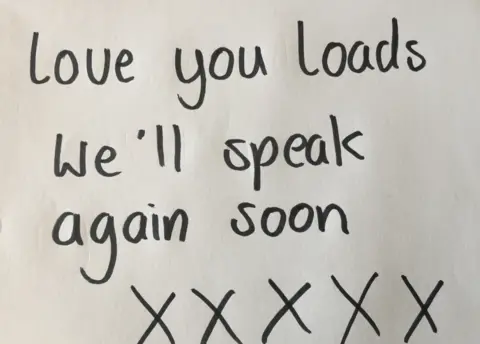 Sandra Mayhew
Sandra MayhewIn place of visiting, she emailed him newsletters, including pictures of herself, so he knew who was writing to him, something which sometimes left him with the impression she had visited, according to the care workers.
She is now working as an official volunteer at the home doing the gardening every other day so she can see him more often, but even with visits it is still difficult.
"Normally before lockdown, we'd go round the garden and I'd hold dad's hand.
"Every time I leave we go through a little charade of blowing kisses and things."
"I just want to give him a big hug."
What does the guidance say?
The older people's commissioner Helena Herklots, said enabling indoor visits - unless lockdown measures were in place - was a question of "fundamental human rights" to private and family life, freedom to worship and liberty, and important for wellbeing.
While the situation in care homes had been a "tragedy", she said: "This is the time to enable [indoor visiting] while balancing the risks... to safeguard all residents."
The Welsh Government guidance said it was up to each care home to make the decision whether to allow visits but it "expects and encourage providers to facilitate visits wherever possible".
Mario Kreft, chairman of Care Forum Wales, said homes were "more anxious than even they were last week" because of the increase in cases in the community in Caerphilly and elsewhere.
"Of course, there is a responsibility to residents' emotional wellbeing and freedom but equally [care homes] have very important responsibilities under health and safety legislation and...to ensure staff are protected - so we have a tension here."
